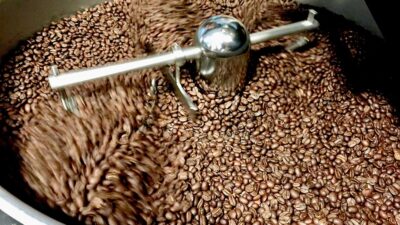Cake decorating is more than just an addition to a baked good; it’s an art form that can elevate an ordinary cake into a stunning centerpiece worthy of celebration. Whether for a birthday, wedding, or any special occasion, mastering the delicate skills of cake decoration can turn simple bakes into spectacular showstoppers. In this article, we’ll explore the fundamentals of cake decorating, essential techniques, and creative tips to inspire your next baking masterpiece.
The Fundamentals of Cake Decorating
1. Understand Your Base
The foundation of any cake decoration is the cake itself. While a basic sponge, pound cake, or chocolate cake can serve as your canvas, consider texture and flavor when selecting your base. A moist and spongy cake not only tastes great but also holds up better under layers of frosting and decoration.
2. Choose the Right Frosting
Frosting is synonymous with cake decorating. There are many types to consider, including buttercream, fondant, cream cheese, and ganache. Each has distinct properties:
- Buttercream: Versatile and easy to work with, perfect for piping and smoothing.
- Fondant: Provides a sleek finish but requires practice to apply smoothly.
- Ganache: Rich and glossy, ideal for drips and glazes.
3. Level and Crumb Coat
Before diving into intricate designs, it’s essential to level your cakes. Using a serrated knife, cut off the dome of the cakes to create an even surface. Next, apply a crumb coat—a thin layer of frosting—to seal in crumbs and create a smooth base for your final coat. Chill the cake after this step for a neater finish.
Essential Techniques for Stunning Decor
1. Piping
Piping is arguably one of the most crucial skills in cake decorating. Using different tips, you can create flowers, borders, and intricate patterns. Practice with buttercream to develop control. Remember: practice makes perfect!
2. Painting and Dusting
For a modern twist, consider using edible paints and dusts. Petal dusts can add dimension and depth to flowers, while edible paints can be used to create intricate designs or personal touches, like monograms or quotes.
3. Sculpting and Shaping
Working with fondant allows for unlimited possibilities in cake design. You can sculpt flowers, figurines, or even animals to sit atop your cake. The key is to ensure that fondant is not too thick, as it can become heavy and affect the stability of your cake.
4. Creating Textures
Adding texture can significantly enhance the visual appeal of your cake. Techniques like ruffling, brushing, or creating waves with a fork can bring your cake to life and make it look more dynamic.
Creative Tips for Inspiring Designs
1. Use Nature for Inspiration
Floral patterns, natural colors, and rustic themes can turn your cake into a work of art that captures seasonal beauty. Edible flowers, fresh fruits, and greenery can bring freshness to your designs.
2. Color Harmony
Choosing a cohesive color palette can elevate your cake’s aesthetic. Consider using complementary colors or a monochromatic scheme to create a harmonious look. Remember, colors can evoke different emotions, so choose wisely!
3. Embrace Minimalism
Sometimes, less is more. Simple designs using minimal elements—such as a smooth finish, few accents, or a clean silhouette—can be just as impactful as elaborate decorations. A well-placed gold leaf or a single flower can create elegance without overwhelming the senses.
4. Seasonal Themes
Coordinate your decorations with the seasons or holidays. Think pumpkin spice and maple leaves in the fall or pastel hues and floral designs for spring. Tailoring your cake to the season creates relevance and excitement.
Conclusion
The art of cake decorating transforms the act of baking into an exuberant expression of creativity. By mastering foundational skills, experimenting with new techniques, and embracing artistic instincts, you can create cakes that are not only delicious but also visually stunning. So, don your apron, gather your supplies, and unleash your creativity—the world of cake decoration awaits!



